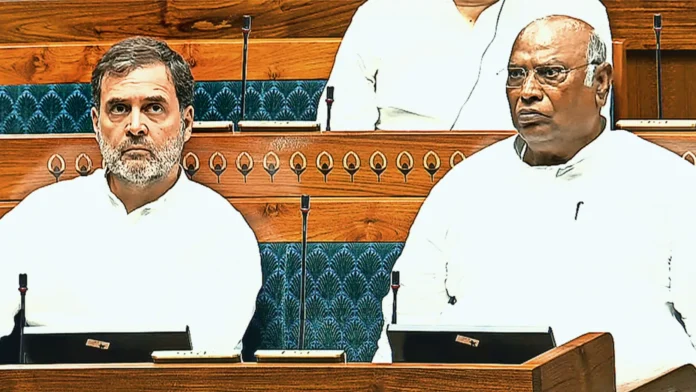The Congress party has strongly objected to the appointment of Justice V Ramasubramanian (Retd) as the Chairperson of the National Human Rights Commission (NHRC), alleging that the selection process was flawed and lacked inclusivity.
Congress Dissent Note Highlights:
- Flawed Selection Process:
- Congress leaders Rahul Gandhi (Lok Sabha Leader of Opposition) and Mallikarjun Kharge (Rajya Sabha LoP) criticized the lack of mutual consultation and consensus during the selection process.
- They alleged that the numerical majority of the ruling government in the committee was used to override concerns and perspectives raised by opposition members.
- Proposed Candidates:
- Congress recommended Justice Rohinton Fali Nariman and Justice Kuttiyil Mathew Joseph for the Chairperson role, citing their distinguished careers and commitment to constitutional values and individual freedoms.
- They emphasized the inclusion of diverse candidates, such as Justice Nariman (from the Parsi minority) and Justice Joseph (from the Christian minority), to reflect India’s pluralistic ethos.
- Merit and Diversity:
- For NHRC members, Congress proposed Justice S. Muralidhar and Justice Akil Abdulhamid Qureshi, highlighting their track records in upholding human rights.
- The dissent note underlined the importance of maintaining regional, caste, community, and religious diversity within the NHRC to ensure its inclusivity and public trust.
- Concerns Raised:
- Congress stated that the dismissive approach of the majority in the selection committee undermines the credibility and fairness of the NHRC.
- They expressed disappointment at the exclusion of their proposed candidates, calling it a missed opportunity to strengthen the NHRC’s commitment to India’s constitutional ethos and social diversity.
Official Appointment:
Despite the dissent, President Droupadi Murmu appointed Justice V Ramasubramanian (Retd), a former Supreme Court judge, as the Chairperson of the NHRC.
Congress’ Position:
The party maintains that its objections are rooted in the need for a more transparent, inclusive, and merit-based approach in appointments to statutory bodies like the NHRC, which play a pivotal role in protecting the fundamental rights of India’s citizens.
The debate underscores ongoing political disagreements over the functioning and composition of independent institutions in India.


